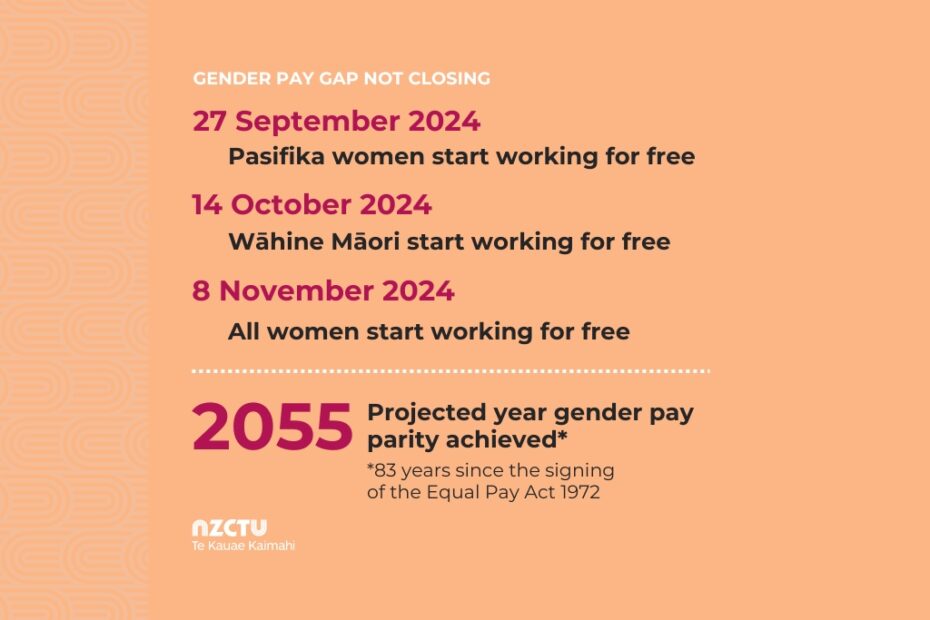Evidence released by the NZCTU Te Kauae Kaimahi today shows that the gender pay gap is not closing quickly enough. “Calculations of official data show that women are paid 8.9% less than men on average. This fell by less than 1% last year. It is time for bolder action from the Government.” said NZCTU Vice President Rachel Mackintosh.
“It is unacceptable that in 2024 women are still discriminated against. On current trends it will take until 2055 to achieve gender pay parity across the economy – 83 years since the signing of the Equal Pay Act in 1972.”
“As Pasifika women are paid so much less than Pākeha men, they are effectively working for free from today, 27 September 2024. Wāhine Māori start working for free from October 14. All women start working for free from November 8. The average female worker loses $149.20 a week in income due to gender-based discrimination.”
“When women’s work is devalued and underpaid, women live in poverty, and so do their children. The ripples of childhood poverty last whole lives. There is no justification for perpetuating inequality by failing to act to raise women’s pay.”
“The most efficient way to close the gender pay gap is via pay equity settlements.”
“Changes by this Government will make the pay equity process more difficult. By closing the Pay Equity Unit, and making funding for existing and future pay equity settlements harder, they have stopped progress towards pay equality.”
In addition, lifting the Minimum Wage by less than inflation affects more women than men.
Ceasing progress on pay transparency means the injustice of pay inequity continues to live in the dark.
“Closing the gender pay gap would benefit the wider economy and deliver $1.5bn in new tax. And it would be an essential step to good work and providing dignity for all. It would benefit everyone. It is clearly untenable for the gender pay gap to continue to exist until 2055. Action is needed now.”
